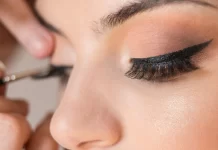Are you thinking about switching to the use of contact lenses instead of eyeglasses? You have to take note of many factors so that you will not encounter any form of problem. If you have recently been diagnosed to need corrective lenses and you are going straight to contacts, you should do your part and research first. There are many things that you should know about, especially on maintenance and self-care
The Basic Factors
Basically, you can choose from four types: toric lenses, rigid gas permeable lenses, vial lenses, or soft contact lenses. Before you decide which one to purchase, you must first take time to different each one and what they can offer to you personally. Also, you can pick if you will get a disposable pair, or a long term one.
Usually, people think about the budget, lifestyle, and schedule. But one significant thing that you should be concerned about is how the climate conditions in your area can affect your contact lens use. Even if the weather is not necessarily a concern in the locality where you live in, you might still be concerned about its possible effect on your eyes if there is a place that you plan to visit. Here are some things you should note about weather, climate, and contact lenses.
Contact Lenses Vs. Dust
If there is an extremely uncomfortable thing that contact lens wearers can experience, it is wind kicking up the dirt, dust flying through the air and into your eyes. If you are considering hard lenses, you should be wary of gusty winds that carry dust, because it will surely bring you pain. Luckily, if you wear sunglasses on the said dusty days can help to minimize the harmful effects and keep the dust away from your eyes and your contact lenses. If you are someone who lives in a place where dusty days happen more often than not, you should remove your contact lenses every couple of hours or after you traverse against the strong winds. Clean them and rinse them, then you can put them back in.
Contact Lenses Vs. Dry Heat
When you are in a dry climate condition, like how it is in deserts all over the country, keep your contact lenses moist can be your ultimate struggle. In desert-like locations, what you can encounter is dry air and heat, combining together to somewhat suck the cooling moisture that your eye naturally renders to the contact lens. No worries, dryness can only make you feel a vague discomfort. A simple solution would be to apply rewetting drops to effectively restore comfort.
Contact Lenses Vs. Rainy Weather
In extreme types of weather, contact lenses are usually seen as faring better compared to corrective lenses. It is mainly because you do not have to deal with cleaning up fogged glasses as well as bulky frames on your nose. If you are sensitive to getting water in your eyes, you might tend to blink a lot more or even rub your lenses off when you are trying to wipe the water away. That’s the main thing that you should be careful of.
Contact Lenses Vs. Summer
Most contact lenses can be worn whatever the weather is. Both the bright sunlight of long summer days, as well as staying in air conditioned rooms, can lead to dry and scratchy eyes that can make it harder to wear your contact lenses. Additionally, freshly cut grass and blooming flowers can contribute to summer allergies, which usually bring harm to the eyes. You should take note of the following:
- Generally, avoid wearing your contact lenses underwater, whether a chlorinated pool, river, lake or the ocean.
- If you want to wear contact lenses while swimming, it is better to use daily disposable ones and toss them immediately after.
- You can also choose to wear goggles on top of your contact lenses.
- When you are staying in an air-conditioned area, lubricating eye drops will help keep your eyes moist.
- To protect your eyes and contact lenses from UV rays, use a pair of high-quality sunglasses with UVA and UVB protection.
- If you commonly suffer from seasonal allergies, avoid rubbing your eyes and go for daily disposables for ease of use.
Contact Lenses Vs. Winter
Is a winter wonderland perfect for contact lens wearers? When faced with extreme cold, combined with snow, rain, and wind can bring extreme stress to your eyes. And even though you can encounter rain or snow, winter air is actually drier than other seasons. Here are some things to take note when wearing contact lenses in the winter:
- Wear some sunglasses as protection against damaging wind and UV rays. The eyes can actually become sunburned, which will lead to blurred vision and the sensation of burning.
- Avoid direct sources of heat like fireplaces and heating vents.
- When you use indoor heating, consider having a humidifier to maintain moisture in the air.
- Take note of staying hydrated, so monitor your water intake.
- Because of the dryness in your surroundings, your body’s tear glands go into overdrive to replace moisture in your eyes. Use eye drops that are designed for contact lens use to keep your eyes moisturized.
- Change your contact lenses regularly, be it every day, weekly, or monthly, depending on the type that you buy. This allows your eyes to get more oxygen, enhance comfort, and lessen the irritation. Use a lens auto-washer to keep your lenses clean.
Wearing contact lenses is something that requires attention, maintenance, and extreme care. You should make sure that you abide by the usual precautions because disregarding them can further damage your eyesight. If you can, try to take a break from wearing contact lenses and wear your eyeglasses instead. A few hours per day, like whenever you go home from school or work can be considered as an ideal break. You should also make sure to get plenty of sleep and rest, as fatigue can also be reflected in the dryness of your eyes. Having a good night’s sleep can help you begin your day refreshed and ready for the many things your eyes will go through on the day ahead.
















